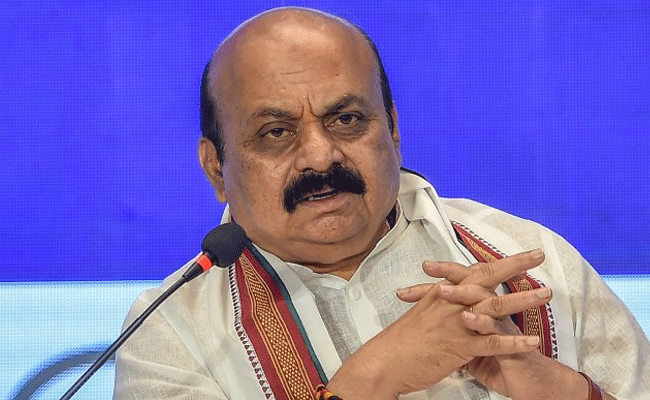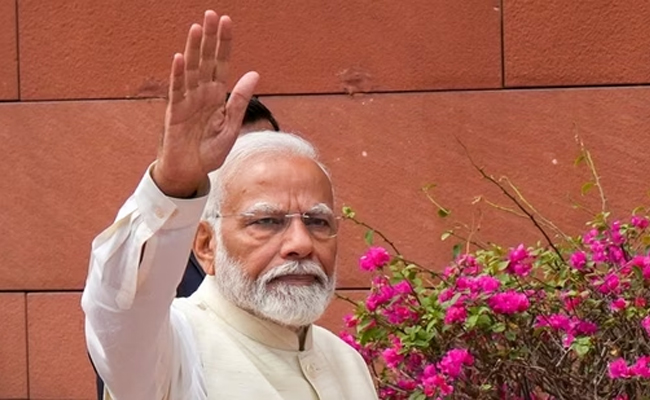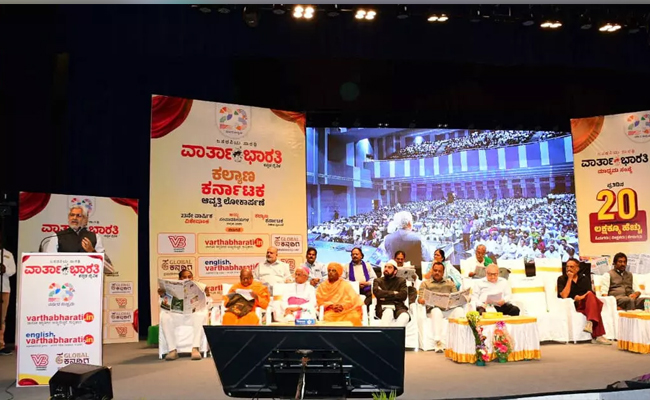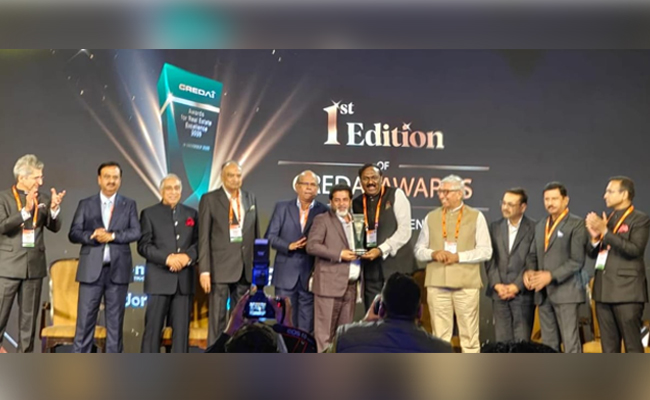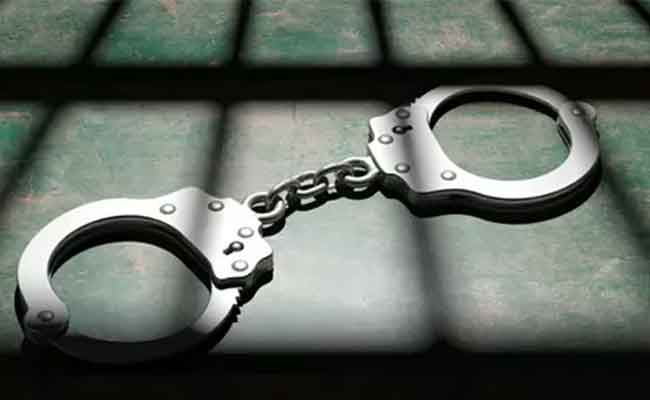Bengaluru (PTI): Karnataka Chief Minister Basavaraj Bommai on Saturday said he felt there is a need to open an institution, on the lines of Prime Ministers' Museum in New Delhi, representing the struggle for the state's unification and major contributions made by all chief ministers.
He pointed out that this was just an idea at the moment, and a programme in this regard may be prepared after discussing with all persons concerned.
"Our future generation should not forget those who built Karnataka. Their sacrifices, farsightedness, ideals and principles have ensured that the state stands. So, remembering them and their works, and informing it to the future generation is our duty," Bommai said.
Speaking to reporters here, he said ample literature regarding the contributions is already available, but it should be prepared regarding all chief ministers, and promoted among today's youth.
"What I feel is there is need for a museum that represents - the mindset of the people and situation that existed when Karnataka became a state, how minds of people from various regions came together, leading to the fight for Karnataka Ekikarana (unification). Also, various agitations or movements that took place in the interest of the state, and also major decisions taken by all Chief Ministers, on the lines of the Prime Ministers' Museum in Delhi," he added.
The Chief Minister was speaking after unveiling the statue of K C Reddy, the first chief minister of Mysuru state (now Karnataka) at Vidhana Soudha here.
He also said Reddy has left behind a rich legacy and that the state government is ready to provide all cooperation to set up a memorial of Reddy in his hometown in Kolar.
Noting that Reddy, a veteran freedom fighter, hailed from a farmer's family and worked as an advocate and journalist, while also floating a party, 'Prajapratinidhi', Bommai said during four-and-half years of governance, the first CM helped in formulating legislation keeping in view the state's future, and building the government machinery.
Let the Truth be known. If you read VB and like VB, please be a VB Supporter and Help us deliver the Truth to one and all.
Kolkata (PTI): Prime Minister Narendra Modi’s helicopter failed to land at the Taherpur helipad in West Bengal owing to low visibility on account of dense fog in the area on Saturday, an official said.
The PM’s chopper made a U-turn after hovering over the helipad ground for a while and returned to the Kolkata airport, he said.
Till reports last received, the Prime Minister was waiting at the airport for further updates on the weather situation.
It wasn’t immediately clear if Modi would reach the rally venue district by road or whether he would wait for the weather to clear up and make another attempt to reach Taherpur by the aerial route, the official said.
Earlier in the day, the Prime Minister reached Kolkata at around 10.40 am and took a chopper onward to Taherpur in Nadia district, where he is scheduled to hold an administrative programme to launch highway projects in West Bengal, followed by a political rally of the BJP, titled Parivartan Sankalpa Sabha, which he is supposed to address.

